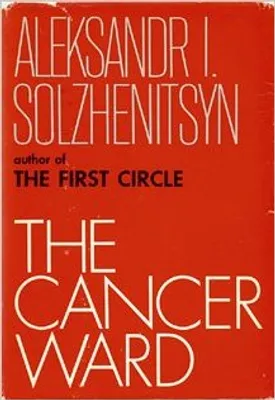Aleksandr Solzhenitsyn
The life of author and Nobel Prize Laureate, Aleksandr Solzhenitsyn, exemplifies the struggles of intellectuals and writers to survive in the Soviet Union during the late 20th century. His work offers insight into the state of life under the oppressive system and his literary works serve as a source of inspiration and hope in the post-soviet world.
Born in Kislovodsk, Russia, in December 1918, Aleksandr Solzhenitsyn survived a childhood of poverty during which his mother died of starvation. He went on to excel in mathematics and literature, eventually gaining entry into the Moscow State University in 1944.
It was during this time that Solzhenitsyn began writing short stories, poetry and essays, often inspired by the political conditions in his home country. In 1945, he was arrested for praising another author in a letter and sentenced to eight years in a labor camp. His experiences in the camp, along with time spent in exile and a forced internal exile, would shape Solzhenitsyn's writing in the years to come.
After being released from the labor camp in 1953, Solzhenitsyn went on to pursue his literary career, writing his memoir One Day In The Life of Ivan Denisovich in 1962 which quickly made him a celebrated hero in the Soviet Union and around the world. The book tells the story of a typical day in a gulag labor camp in Soviet Russia.
Solzhenitsyn's other works of fiction inspired by his experiences living under the Soviet regime include Cancer Ward, about the struggles of a patient and doctor at an experimental medical ward, and Cancer Ward and the Gulag Archipelago, a three-volume account of his own suffering in the labor camps. His works The First Circle and The Red Wheel dealt with intellectual life in the Soviet Union and the rationalizations of the system's brutality.
While Solzhenitsyn never wrote a book explicitly against the Soviet Union, his works were seen as a form of resistance. By recounting his experience of suffering, he defied the Soviets’ efforts to erase memories of the repression that had taken place.
This defiance eventually led to his deportation from the Soviet Union in 1974, which was followed by a period of exile in the United States and Germany. Although his health and standing with the authorities deteriorated during this period, his works continued to draw attention and won him multiple awards, including the Nobel Prize for Literature in 1970 and the Templeton Prize in 1983.
In 1994, Solzhenitsyn returned to Russia and was welcomed as a national hero. While living back in his home country, he continued to write about his experiences.
Throughout his life, Aleksandr Solzhenitsyn showed a dedication to writing and a willingness to defy the Soviet system, which has earned him the respect of his readers and admirers. His books have been credited with inspiring people all around the world, and serve as a reminder of the power of courage and determination in the face of oppressive systems.

